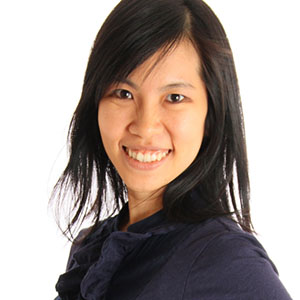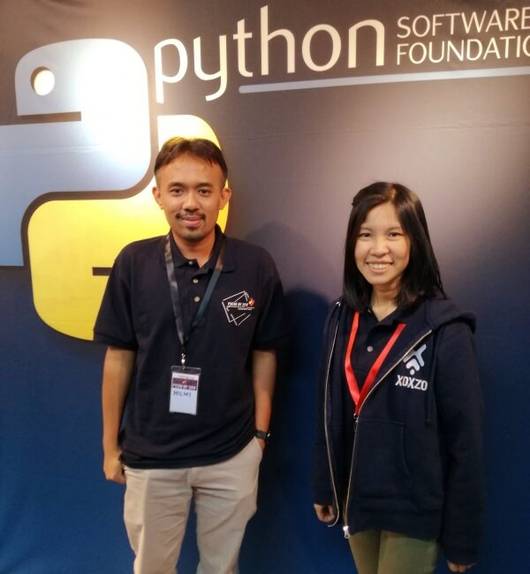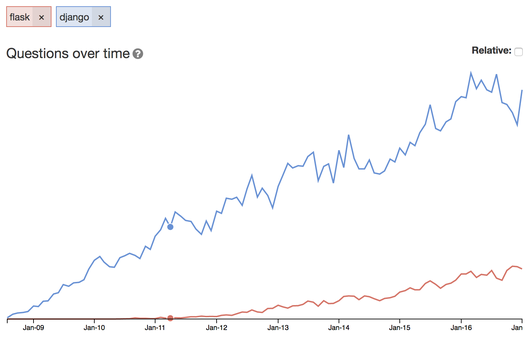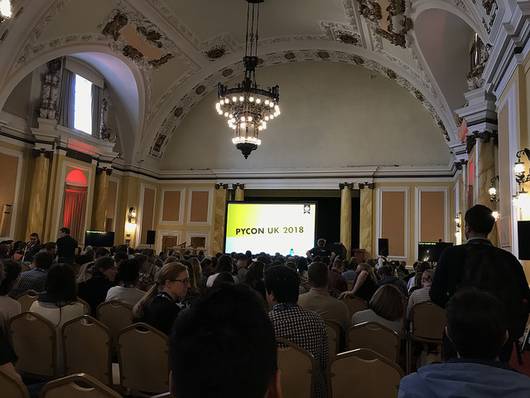During the recent PyCon MY 2019, we met two young and promising professionals who had switched to IT and software development jobs from their previous jobs in other industries. We had a chat with each of them to find out how the journey had been and the how’s and why’s of their respective industry change.
Siti Nuraini – Quantity Surveyor to System Engineer
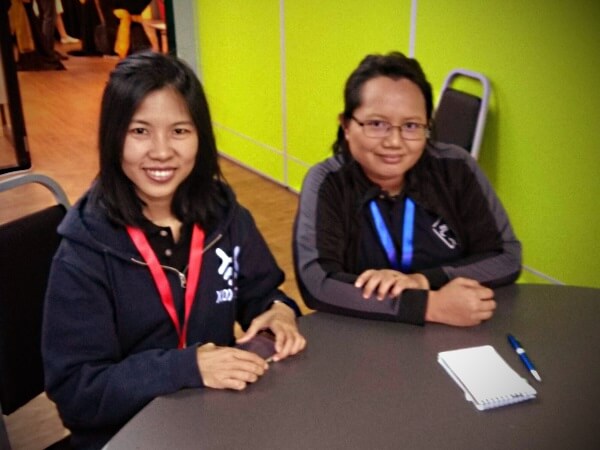
Siti Nuraini’s acquaintance with computers started early. Heavily influenced by her father who is an IT teacher, she started playing with the DOS 386 back in 1990 which her father used for games, using it she would have to type command lines on the DOS interface. Her family computer was upgraded to a Pentium 4 in 1995, while the games she played had become Price of Persia and Pocahontas. Being recruited as the gaming partner with her father had instilled the spirit of positive competition in her, always trying to see who performs better at the computer between the two of them. She had learned how to repair a CPU at Form 3. She later moved on to create Macromedia Flash animation and picked up Visual Basic programming.
When it came the time for Nuraini to choose her field of study after Form 5, her instinct would be to go into IT. Ironically her father advised against it, as he understood the industry to be male dominated back then, quoting the IT class that he taught which comprised of 100% male students in the early 2000’s. Not being able to foresee the future, Nuraini surveyed her options and eventually settled on quantity surveying in the construction industry. To date, she had been working in the industry as a building estimator for 8 years since 2010.
While in the construction industry, Nuraini observed that while the construction technology is advanced, the information technology (IT) lags behind. She had taken the initiatives to set up shared drive for the team and conducted a training session for her colleagues because they did not know what it was; she had created Excel sheets with formula to simplify the work process while her colleague in quantity surveying asked if she could use simpler formulae; she had also advocated for the use of digital photography and IT tools to document and analyze defects; when her then employer used AutoCAD, she had taken to develop a tool to extract quantity data and export it as a report; she had also created an app for interior design to manage the samples, including prices and designs which made use of AppSheet and Google Drive with a combination of simple commands to operate. She had even become the unofficial IT support personnel for printer and Wifi connections in the office.
Her dream to create better IT solutions for the construction industry morphed into something different when her mentor and friends in IT persuaded her to switch industry altogether. She had decided to take her passion more seriously and in an attempt to turn it into a professional career path, she took a career break for 6 months, started learning Python, took online courses by MIT and Harvard, and started a new job with Katana Logic as a system engineer in which she works on the storage and server. She willingly took a pay cut in exchange for the opportunity to explore and and learn more about IoT.
She is confident that she is on the right track to have made the switch. To make up for her professional qualification, early this year she enrolled into a Bachelor of Information Technology program at OUM and study part-time while she works. She continues to explore her interested by starting interest groups in the university, mainly in IoT and game development. She is actively experimenting with Unity, Blender, and Godot in game development; and Raspberry Pi and Fedora in IoT. She is aiming to use Raspberry Pi for her final year project and had even persuaded three of her course mates to purchase a unit each and start building something with it.
Apart from her job and university study, she remains closely bonded to the Python community, which is also the reason she volunteered as an organizing committee member at PyCon MY 2019.
Amirul Abu – Chemical Engineer to Full Stack Engineer
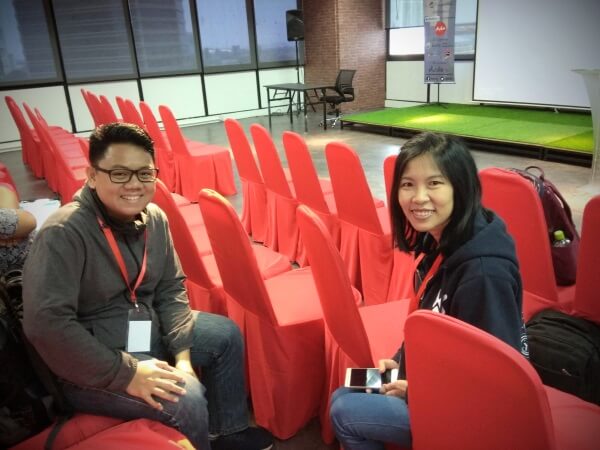
As the cliche goes, data is the new oil. It could not have been truer for Amirul Abu, who left the oil and gas industry to become a full stack engineer at Vase.ai, an online market research company.
When the time came for Amirul to choose a major for his undergraduate study, he opted for chemical engineering out of his love for chemistry. Upon graduation, as might be expected he started working as a chemical engineer. While on the job, every performance review season was a period of anxiety for him. As someone who strives to achieve high performance, he constantly felt inadequate even though his superior told him otherwise.
While seeking options to advance his career, Amirul looked to a passion that he had cultivated during his undergraduate studies. He was a computer geek back then, starting with formatting Windows laptop, and helping his friends removing viruses from their computers. He happened to be surrounded by friends majoring in IT and learnt about Linux from his seniors. He also got his hands on entrepreneurship by joining fellow undergraduates who built websites for clients using Wordpress and was initiated into programming by learning if-else and for loops in C++. During his initial job hunting period after graduation, Amirul took on web development bootcamps learning Ruby on Rails at Codecademy, and then at NEXT Academy in Putrajaya.
In his first job as a process safety executive, he maintained his hobby in programming, and changed to using Python, with Ruby being replaced by Django. He kept learning after work hours with a voice in his heart that said, someday I want to be a programmer. The first step Amirul took towards actualizing this ambition was to decide on what type of programmer he wanted to be. Choosing a direction in web development, he realized that he would have to equip himself with both front end and back end knowledge. With this goal in mind, he kick started his self learning journey by learning HTML, CSS, and Javascript on freeCodeCamp.
Then, to polish his Python and Django skills, Amirul used the book Python Crash Course where he picked up basic syntaxes, and worked on the projects suggested at the end of the book.
He also took CS50’s Introduction to Computer Science where he learnt about memory management, as well as manipulating pointers and address. It is not directly related to web development but helped him appreciate Python better. He also shared his learning journey and projects on mirul.xyz
Amirul does not have a dedicated mentor but emphasizes the importance of having mentors as he has numerous of them. He regularly attends meetups, among them are DevOps meetup and Google Cloud meetup. More importantly is also joining the after party mamak sessions, where he met his current boss.
The biggest challenge in acquiring new knowledge in a different field while working a fulltime job is time management. Applying useful time management skill and lean management concept he learnt in the oil and gas industry, he used a Kanban board and an app to track his progress, enforcing discipline by allocating 1-2 hours per day to study programming, while reserving the weekends to complete his pet projects, for example trying out new Python libraries that he had just discovered. The app tracked his learning journey from 2017 to 2019. Living in Labuan at that time helped in a way, since it is a serene city with less distractions.
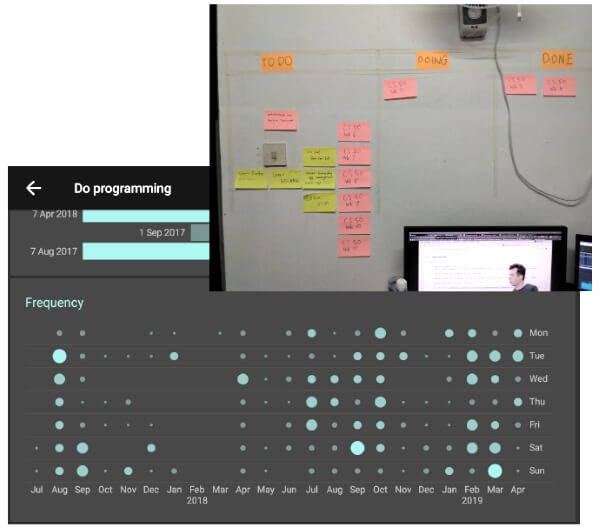
On landing his software development job, at his one and only programming job interview, he was required to upload json file to populate the database, display all the uploaded items, and provide a search box to filter out the items. He was allowed to use any language, so he opted for Vanilla Javascript to complete the task during the interview.
In response to the PyCon MY 2019 call for proposal, Amirul submitted a talk titled “How Python helped me change my career” and was accepted as a speaker in which he shared the journey of his career change.
Conclusion
Switching industry might be unusual but not impossible, as both Nuraini and Amirul have demonstrated in their career moves, it does however require grit and perseverence to achieve. As long as one has strong motivation, staunch discipline, and the will to learn new skills, it is a goal that can be accomplished.
